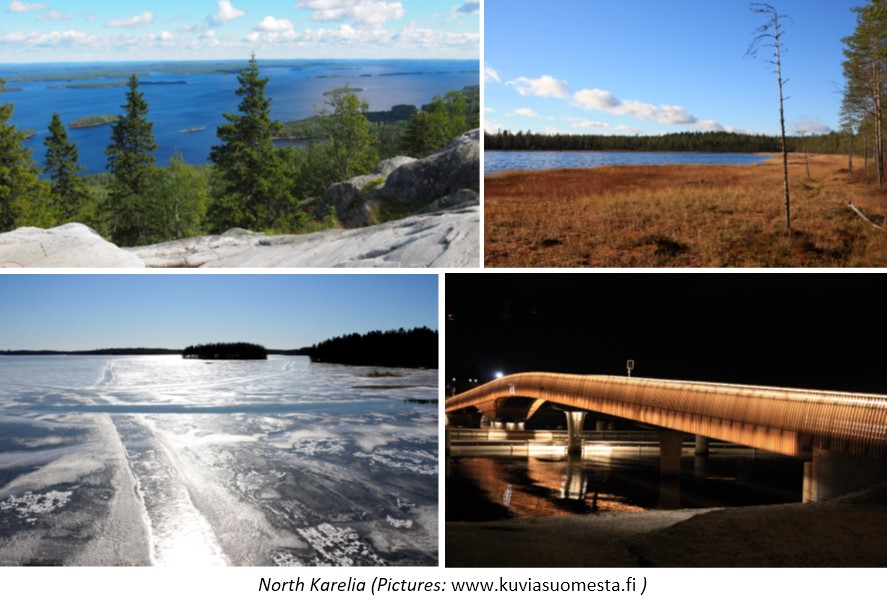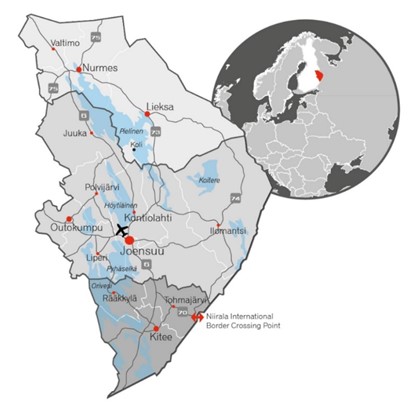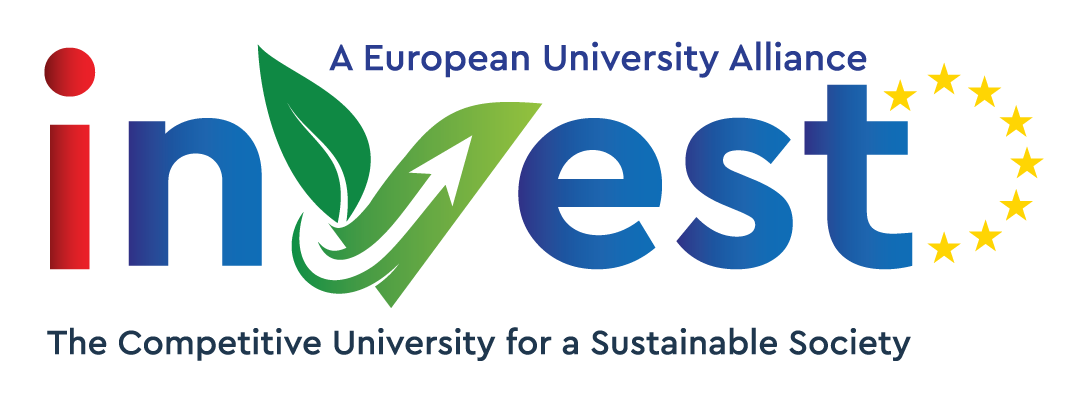2. LIVING LABS NORTH KARELIA, FINLAND
2. Living Labs North Karelia, Finland
Contact: Helena Puhakka-Tarvainen: helena.puhakka-tarvainen@karelia.fi
Karelia University of Applied Sciences, Finland
2.1 Description of the area

North Karelia is the easternmost region of the continental Europe, thus a place where east and west meet. The region shares a 300 km stretch of frontier with Russian Federation. Total population of the region is ca. 166,000 (decreasing) with regional capital Joensuu. Within the region, the differences among the population structure and migration are great. Strong industries include forest, metal, extractive and food industries. The competence-based growth industries of the future are Forest bioeconomy and New technologies and materials (e.g., photonics). The region is known for its research and education: there are two universities, three national research institutes and a vocational training institute situating in the region. The North Karelia region consists of hilly landscapes covered with trees and is dotted with rivers and lakes. The four seasons have a clear rhythm of spring, summer, autumn and winter. The total area of the region is 21,585 km2, of which 70 % are forests. The region has totally 2,200 lakes. The peak of Koli is the highest point of Southern and Central Finland (347 m).

The location of the North Karelia region, Finland, compared to the Europe and Russia. Municipality of Heinävesi joined the region in 1st of January 2021, but there is not yet a new map available (source: https://www.pohjois-karjala.fi/fi/web/english/north-karelia) .
2.2 Sustainability issues related to the INVEST themes
a. Water, Energy Food and Environment Nexus
- The development of sustainable, smart agriculture: regional food
- Climate proof regional development
- Energy transition, Green energies
- Green urban and rural environment and quality infrastructure
b. Quality of Life
- Urban – rural relationship: sustainable economy & environment
- Education and capacity building
- New systems of access to public services
- Health & wellbeing
c. Entrepreneurship.
- New business models and smart technologies
- Job creation and human capital management
- Production and consumption and bio-based industries: Precision engineering and Sustainable (timber) engineering
